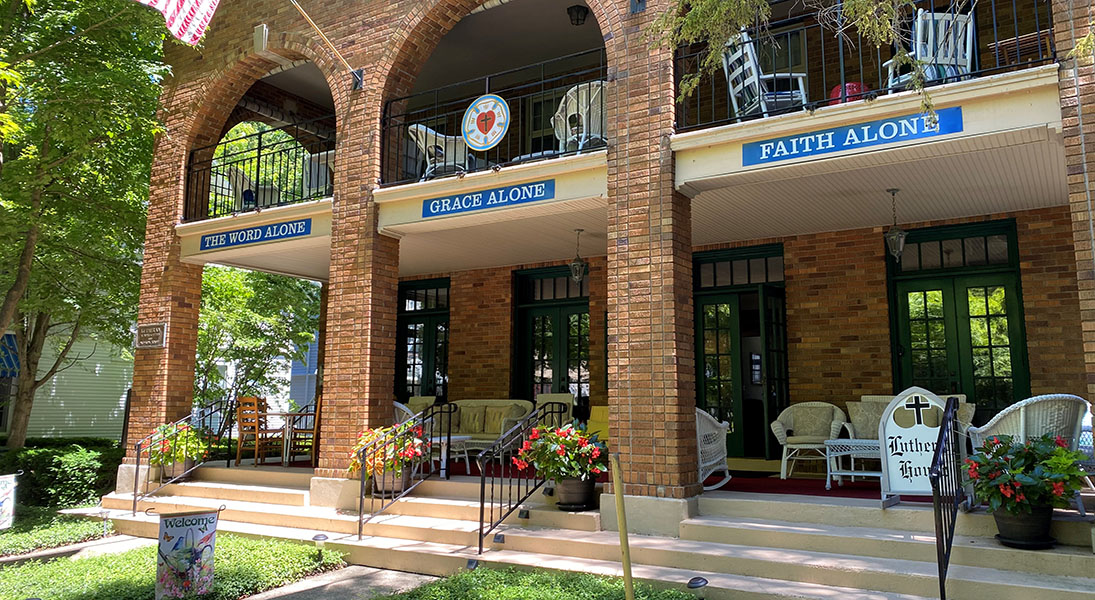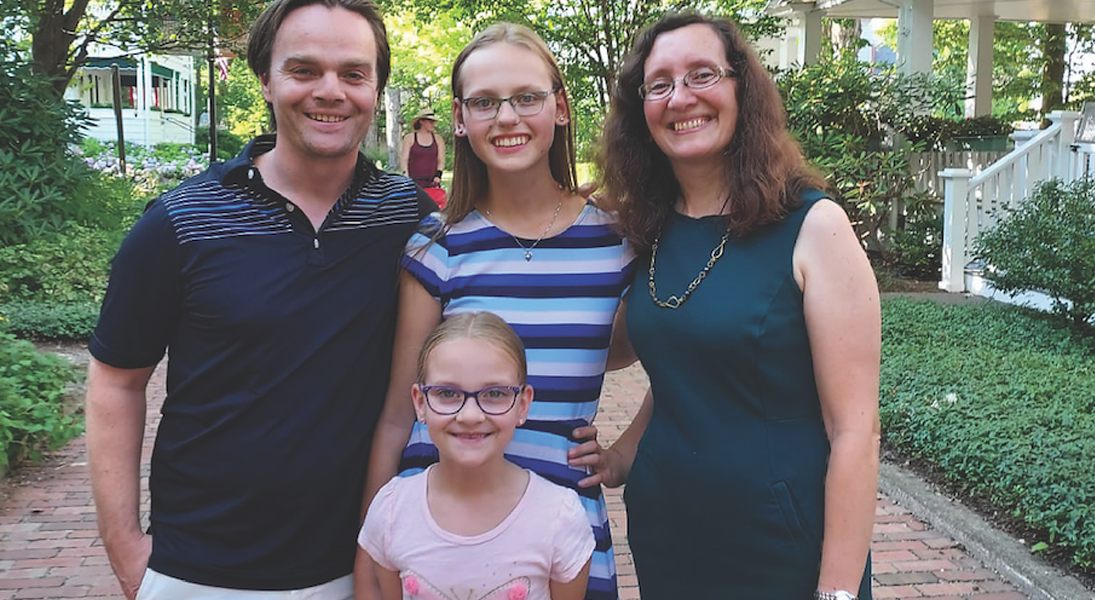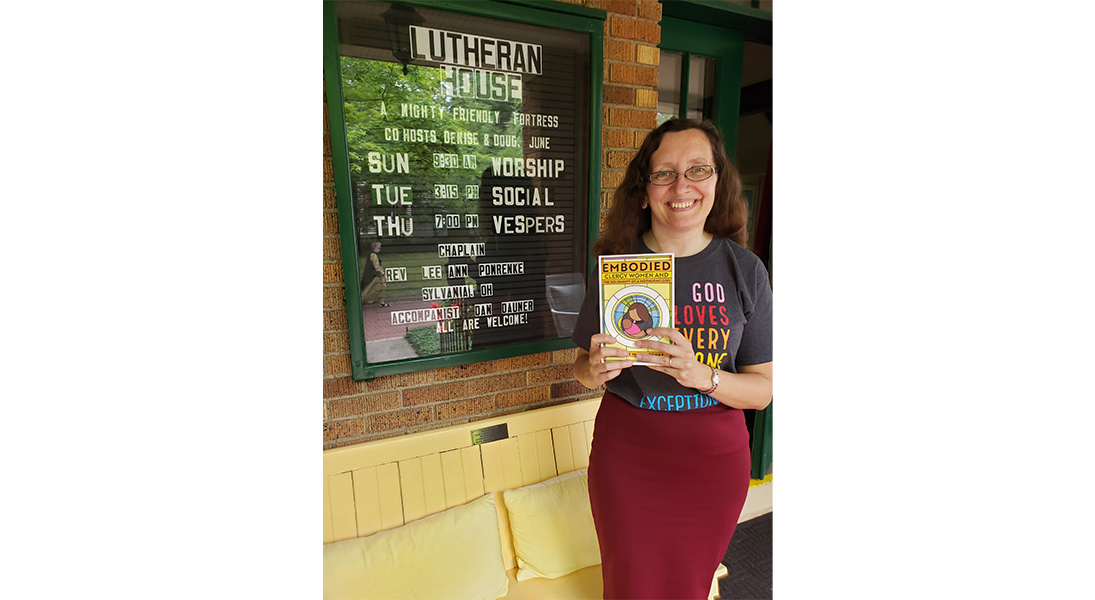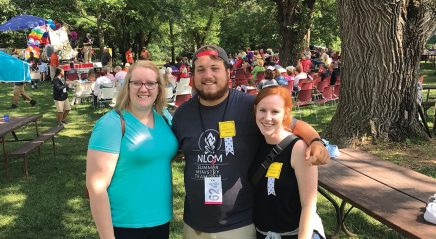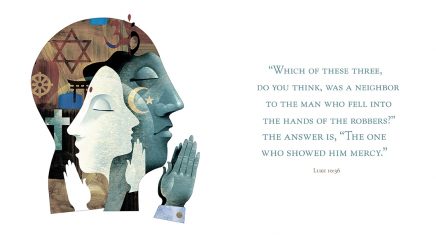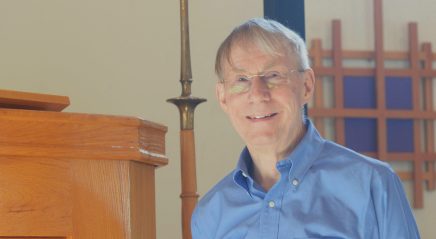For nine weeks each summer, the Chautauqua Institution, a 750-acre community on Chautauqua Lake in southwestern New York, is brimming with speakers and programs examining significant religious, social and political issues.
The not-for-profit institution showcases performing and visual arts and promotes lifelong learning. It also offers lectures and religious services. An estimated 7,500 people are in residence on any day during the nine-week summer season, and more than 100,000 attend scheduled public events. One can think of Chautauqua Institution as a destination for those in search of respite, community and personal growth.
Founded as Chautauqua Lake Sunday School Assembly, the community was originally an educational experiment in vacation learning for Sunday school teachers. Fifteen denominations are represented at the institution—12 of which have houses on the grounds, including the Lutheran House.
“Chautauqua is such a difficult place and experience to describe,” said Lee Ann Pomrenke, an ELCA pastor who served as a Lutheran House chaplain this past summer. “The word ‘institution’ makes you think of perhaps a university building, but it is an entire community—like a village—that comes alive for the … season. It is like camp for everyone in the family, with very specifically appropriate programming available for absolutely everyone, practically every hour of the day.”
“It’s remarkable to have such access.”
Or, as Denise Sager, an ELCA pastor who serves as a co-host of the Lutheran House, said, “It’s like a buffet where you can taste all different kinds of learning and arts [and] then go back for more of what you really appreciate.”
In the most common Chautauqua experience, guests come for a week at a time. A daily gate pass covers most programming, such as attending an opera, watching a film in the cinema or attending performances in the open-air amphitheater, anything from the Peking Acrobats to Sheryl Crow. For a fee people can take additional classes from dance, music and theater schools on campus.
“It’s remarkable to have such access,” Pomrenke said.
Each week of the season has a theme. Daily worship for all at Chautauqua is led by world-renowned preachers such as Richard Rohr and Otis Moss III. There are multiple lectures a day from internationally known speakers and acclaimed organizations, including National Geographic and the Smithsonian.
The Lutheran community
“Chautauqua is a remarkable place, but the Lutheran House makes it financially accessible to more people,” Pomrenke said.
The Lutheran House—a three-story brick building with large front porches on the first and second floors—is inclusive of all Lutheran identities, Pomrenke said. Typically 18 to 24 people reside at the house at any given time during the season.
Though there are private cottages, rentals and inns on the Chautauqua grounds, the Lutheran House is the least expensive property with air conditioning (2022 rates ranged from $360 to $500 a week). There are shared bathrooms and a large communal kitchen; every guest room includes a small refrigerator.
Pomrenke said a stay at the house isn’t only about good stewardship of resources but also about fostering community, with multiple spaces for conversation. “They welcome children, and I will say from personal experience that it is an ideal place to stay for intergenerational interaction,” she said. “My parents also stayed here the week we were at the Lutheran House, and my kids—ages 11 and 7—did puzzles and played cards and chatted with everyone present, like it was the best kind of church community where they were everyone’s children.”
Sheila Ellis, who recently stayed at the Lutheran House for the first time, said it was “just the quintessential Chautauqua experience. If I go to a museum by myself, I just have my experience. But if we go together, I get our experience. Staying in community is like that.”
One way Lutheran pastors can be part of that community is by applying to be a chaplain for a week. They must be recommended by someone known to the house, either a former guest or a board member of the Lutheran Chautauqua Association, which owns the home.
“No one is going to be lonely at the Lutheran House.”
Chaplains lead Sunday-morning worship and Thursday vespers at the house and serve as a pastoral presence throughout the week, living in community, interacting with all residents and participating in programming.
Guests can apply to stay at the house for a week at a time, said Doug Kirsop, a co-host of the house. From Jan. 1 to Feb. 15 only Lutherans can apply for the upcoming summer season. After that, applications are open to anyone.
Two scholarships are available each year, which cover the cost of the stay at the Lutheran House and the gate passes. One is for first-timers to Chautauqua and the other is for people of color or whose primary language is other than English.
If you’ve never heard of the Lutheran House, Kirsop said, that is “all too normal.”
“A Lutheran presence was established at Chautauqua in 1890, soon after Chautauqua was founded,” he said. “The current Lutheran House was built in 1925. Over the years, we have largely relied on word of mouth as our marketing. That means most Lutherans don’t know about Chautauqua and the Lutheran House.”
One could stay at a private rental at Chautauqua, but as Pomrenke pointed out, doing so might mean missing out on some opportunities for community building that the Lutheran house fosters.
“No one is going to be lonely at the Lutheran House,” she said.



